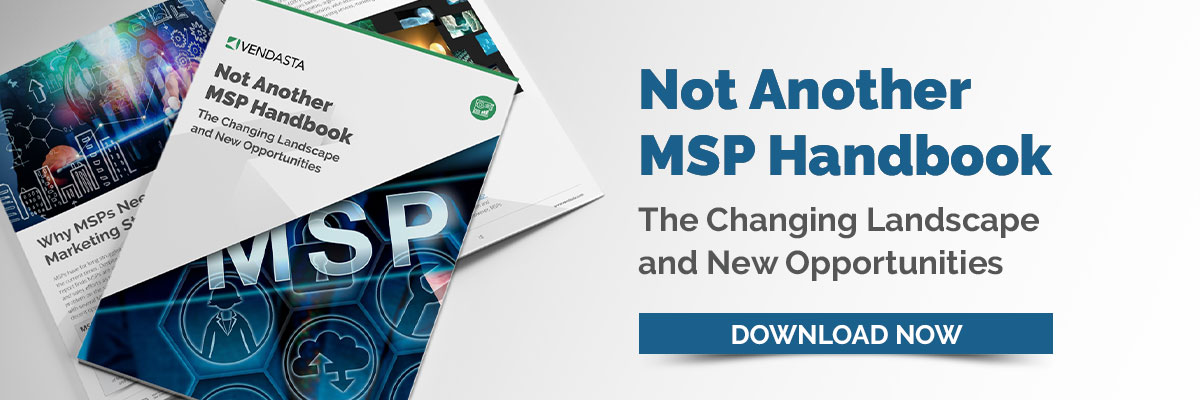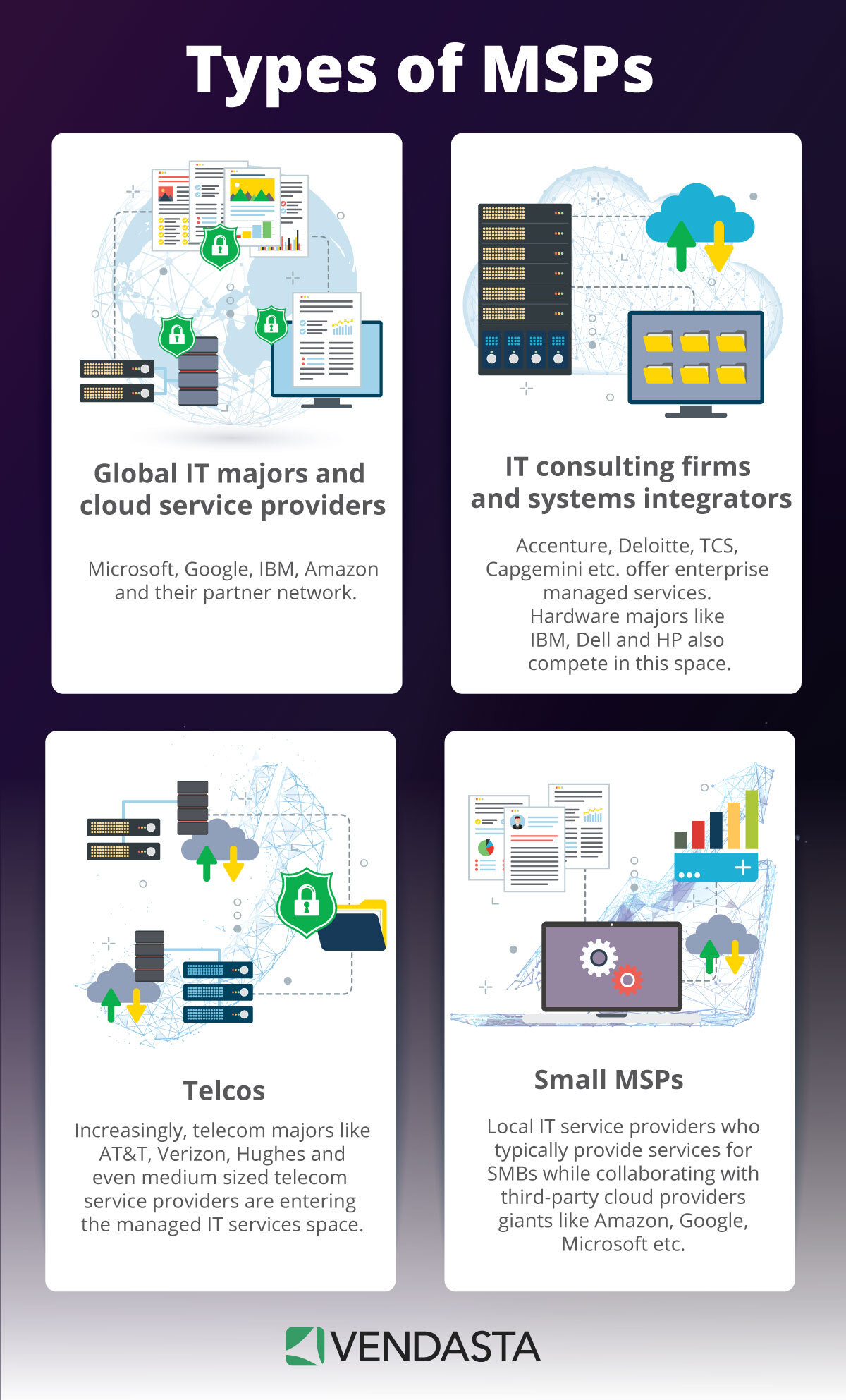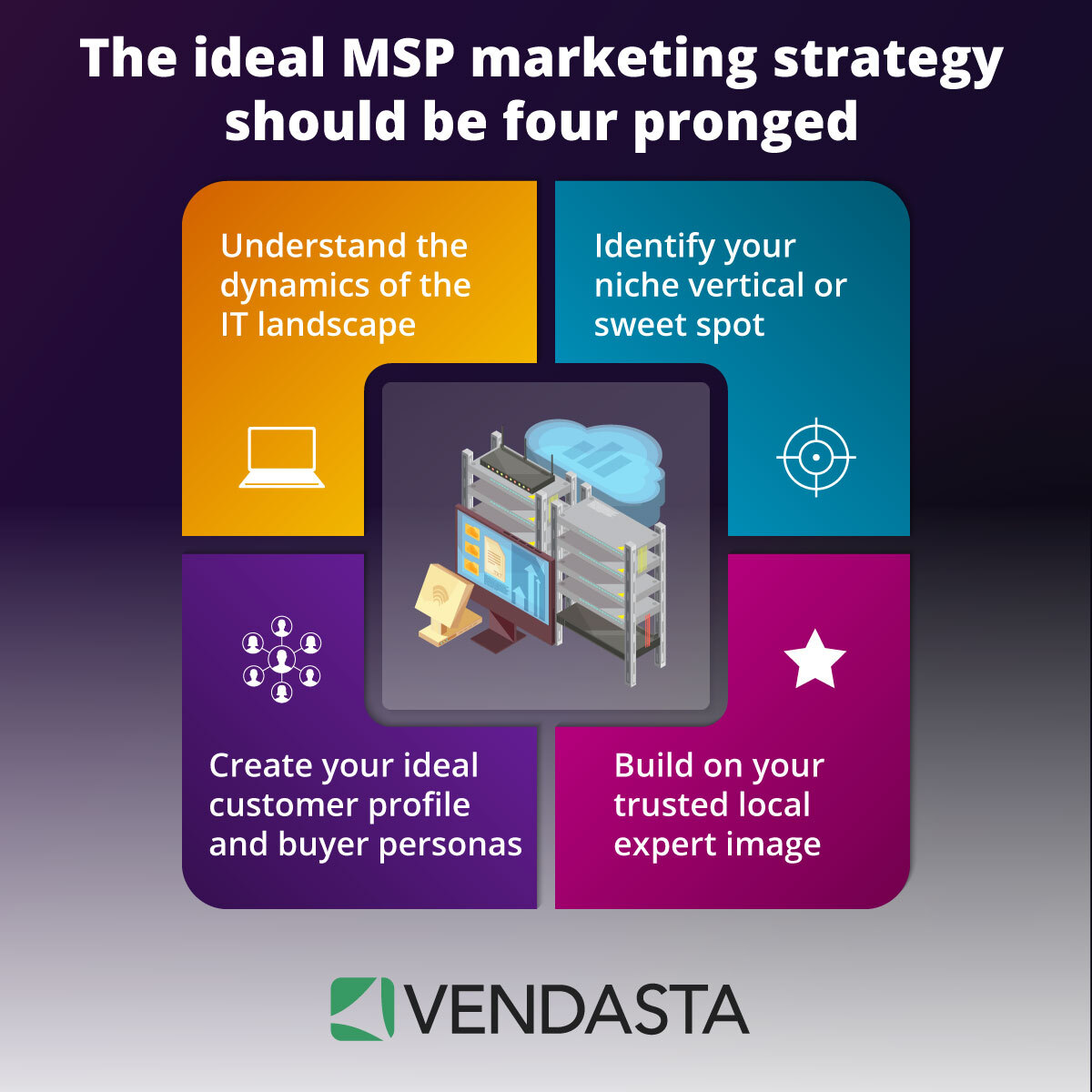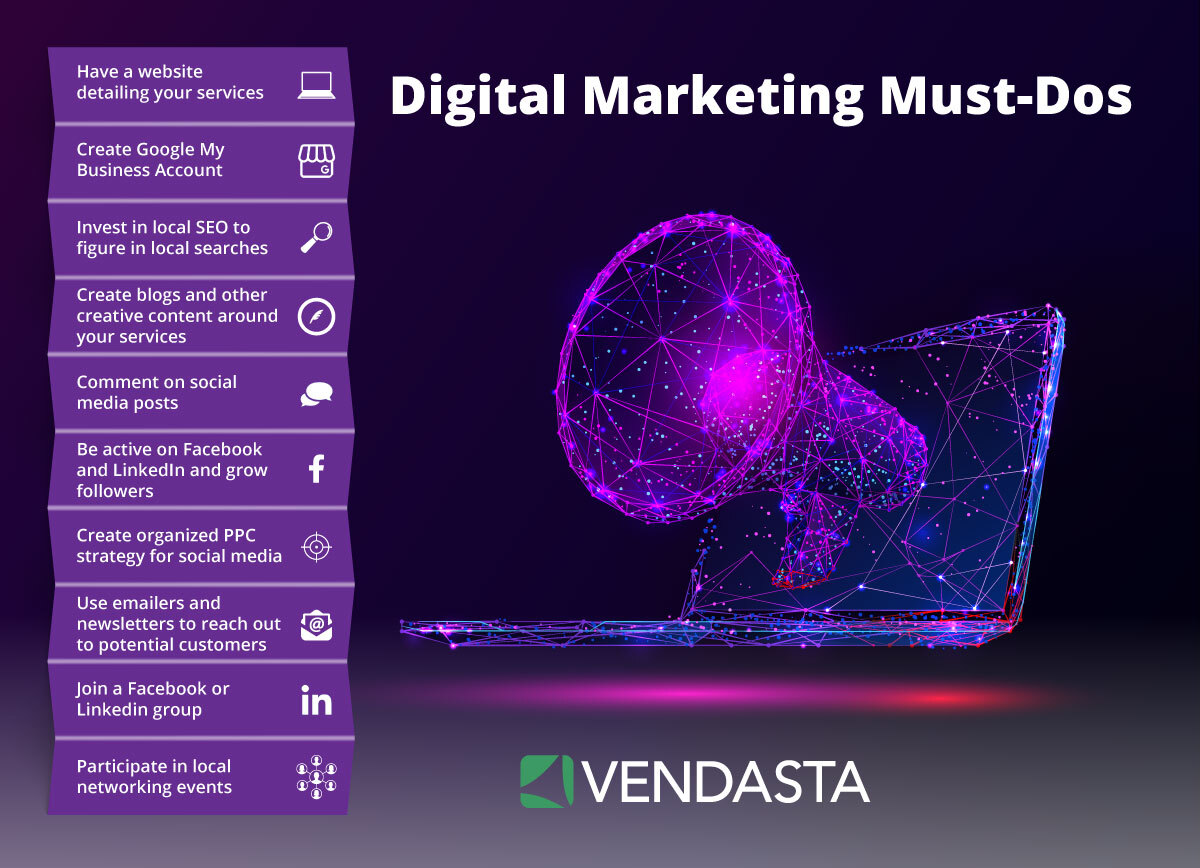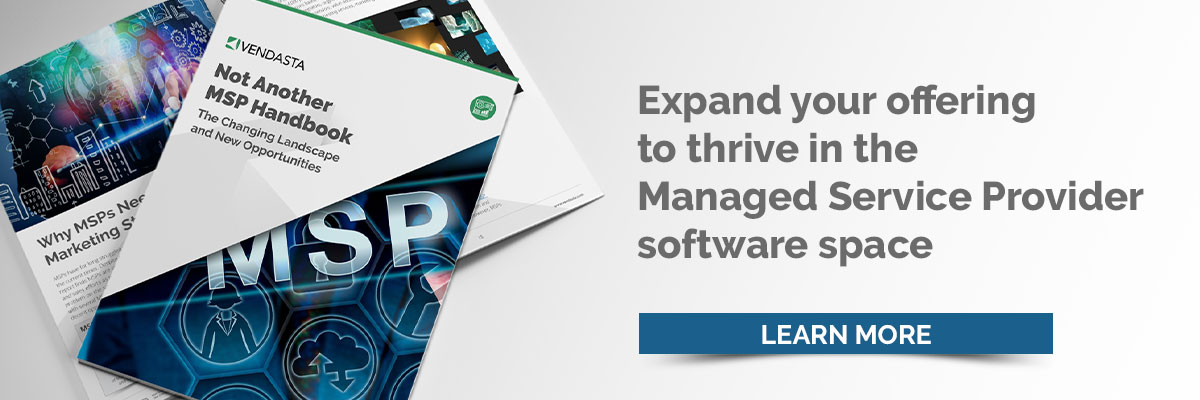The MSP landscape is extremely competitive and currently in a big churn. Therefore, despite the obvious rise in demand for managed service providers, a dedicated MSP marketing strategy is much needed.
There hasn’t been a more exciting time for the global managed service providers (MSP). According to a report from MarketsAndMarkets (M&M), the global MSP market was valued at $242 billion in 2021 and is expected to reach $354.8 billion by 2026. This means a compounded annual growth rate (CAGR) of 7.9 percent during the forecast period, riding primarily on the rise in demand for secure IT infrastructure owing to the COVID-19 pandemic.
“Other than obviously the medical fraternity, IT was the hero when COVID hit and afterwards. As every business had to go remote, they leaned on inhouse IT departments or outsourced IT service providers to help them do that,” says Andrew Down, director of sales (IT channel, MSP/VAR) at Vendasta.
However, despite the market growth, MSPs are still facing an enormous challenge with marketing and sales efforts required for business growth as most of their business is from referrals. About 53 percent of MSPs considered marketing and sales a top challenge, but on average spent less than 2 percent of their revenue on marketing activities, the M&M study noted. “The main problem on the sales and marketing front is around lead generation, with several MSPs finding it difficult to get a strategy that delivers decent opportunities,” it says.
Why MSP marketing?
Why would MSPs be struggling to be heard if their services are hugely in demand?
This is primarily because of the sheer competition. The Microsoft Partner Network alone has 64,000 partners, vendors and service providers that build or sell solutions based on Microsoft products. These partners include systems integrators, original equipment manufacturers, independent software vendors, value-added resellers, telecommunications companies, Internet hosting services, marketing agencies, and resellers.
And that’s just counting one partner network.
Further, the MSP market itself is in a churn. With the pandemic accelerating the ongoing digital revolution many times over, businesses are increasingly looking to MSPs to help them get there. Over 90 percent of businesses today use some type of cloud technology, while the global cloud computing market is growing at 18 percent annually and expected to touch $623.3 billion by 2023. In this background, MSPs have no choice but to offer services tailored to what their customers want, and at times even become more innovative to meet the market demand.
According to Tech Target's Guide to Building and Executing an MSP Business Model, most MSPs rely on with word-of-mouth promotion and customer referrals to get off the ground. At some point, however, MSPs tend to reach a plateau in which new sales just keep up with the natural rate of customer attrition. MSPs must develop a marketing plan to promote their value proposition, maintain a healthy sales pipeline and keep the company growing,
“If you go back a few years, MSPs really had it easy because a lot of companies were using servers and computers in their offices and they still needed to connect to the Internet. And while they might have been using a couple cloud apps, a lot of that was still within the network. So typically, the MSP would handle the licensing for Windows, the installation, the maintenance, the backups… Basically, they were the one-stop shop for everything that that business needed,” says Vendasta Special Projects Advisor Chris Fossenier.
But that’s a shrinking market now with the onset of cloud technology, and is not clearly defined yet for a lot of MSPs. “Also, it's not going to be the same, not something they can fully control like they did in the old architecture,” he adds.
“In today’s competitive world, MSPs have an unenviable challenge of trying to stand-out from the crowd. There are just so many competitors offering similar services to the same market. So how does one get their message across to potential customers?” says Down. He would know, having spent many years serving the VAR/MSP/IT channel space and even running his own MSP business.
ALSO READ: What are MSP Marketing Challenges and Six Ways to Fix Them
A well laid-out marketing strategy is one of the missing pieces in an MSP’s portfolio today. Not only do they have to find new avenues to bring in business by repositioning themselves in the market, but they also need to broaden their offering base, which again needs proper marketing services.
Fossenier agrees. “There are some MSPs who do a good job of positioning themselves and being very specific about their niche or what they offer. In most cases, they are working pretty much off word-of-mouth references. However, to stand out among the competition, they need to position themselves in the market more aggressively. You can focus on testimonials, customer reviews, social media and other such low-hanging fruit. That helps them come up on local Google search,” he says.
Why is MSP marketing different from other B2B marketing?
In its simplest form MSP marketing is the process of generating interest with different types of marketing activities. MSP marketing essentially follows the same principles of other B2B marketing – identifying the ideal customer profile and buyer personas, a well laid out website, creative advertisements and branding materials, emails, social media, blogs, ebooks, etc.
However, to understand why MSP marketing is different from standard B2B marketing, one must understand the landscape. Simply put, a managed service provider or MSP is one who manages the IT infrastructure of a business on a pay-per-use or subscription model. An MSP can supplement a company’s inhouse IT department; or provide everything from hardware purchase to setup and installation and management, to managing software and cloud infrastructure.
MSPs come in all shapes and sizes and can’t be lumped together. They range from the biggest brands in the business, like IBM, Accenture, Cognizant etc, to telcos to your local level IT service provider.
Naturally, there are distinct differences between small, medium and large MSPs in terms of their market outlook and behavior, which is why they need different marketing strategies.
“MSPs that faced the new reality by investing in their digital presence with digital marketing activities like website relaunches, social media content and video content are now reaping the fruits of their labor, while laggers are facing the daunting prospect of a steeper climb as time passes,” adds Ayan Adam, founder of CX Atelier and a partner marketing evangelist.
Finding your niche
In such a wide-ranging pool, it is extremely difficult to stand out, particularly if you are a small MSP. “Let us not forget, a majority of MSPs, if we [look at] sheer numbers, are SMBs themselves. So, they need some of the similar marketing services that other SMBs need to stand out in the market,” says Down.
But then, it is also extremely important for MSPs to know what they specialize in, so that they can focus their energies and expertise on solutions, resources and funding around those areas.
Creating such a strategy is more difficult than it sounds.
Since MSPs belong to the world of IT, first they need to understand the IT industry’s dynamics. But again “because this is a competitive space, it’s unwise to spread your digital marketing strategy — and your business model at large — thin across many sectors. Rather, you should pick a vertical or a market segment, and focus in on a niche within that segment,” writes Zamir Javer, CEO of Jumpfactor Marketing.
This could be tricky and not too easy especially for small and medium MSPs who may want to bag every deal.
Once they have identified their niche, then comes the question of identifying the target audience. An MSP must keep in mind who they are trying to sell to – the CEOs, presidents or Vice Presidents or IT heads of businesses. So, the standard keyword research may not work for their marketing campaigns or pitches – the messaging must be crafted to appeal to the senior leadership of organizations and not the general reader.
Being the trusted local expert
Since most small and medium-sized businesses (SMBs) tend to depend on the local experts, for a local MSP it is important to be aware of the unique challenges that come with positioning themselves as a fully managed IT service. At the same time, they also must realize the unique position they are in – that they CAN position themselves as the trusted local expert in their markets.
In one way, MSP marketing is all about building trust.
The trust that MSPs have with their partners and customers is staggering — they are often given the passwords and access to client data. That level of trust is paramount to a strong relationship and being perceived as the trusted local expert.
“Businesses hire MSPs to provide the right solutions for their fast-changing, developing needs. Since a significant number of these are small and medium-sized businesses (SMB), every deal matters. Taking on a job and not doing it right could lead to disastrous results for your client,” says Down.
A successful MSP needs to be always proactive, and not be a “break fix”. The best MSPs solve a problem even before the client knows it exists.
Thus, the marketing materials for MSPs have to convey that message – that they are the trusted local expert in their community. This is necessary not only to retain existing customers but also to build a new customer base.
Traditional vs digital marketing
Other than the right messaging, the most successful marketing tactic for MSPs should be a right balance of traditional and digital marketing. This is largely due to the background that they come from.
The MSP landscape, because they traditionally served local businesses, was an industry that has been relying heavily on trade shows, face-to-face meetings, and in-person events. But now “the price of ‘digital debt’ is getting more exorbitant by the day as traditional ways of engaging with clients like in person events are becoming less and less reliable with the new [COVID] variants and reclosures,” says Adam.
This means while inserting an ad in the local directory or the newspaper should still work, you also need to pay close attention to build your local SEO to figure in local searches or focus on social media promotions so that your potential buyers can find you.
The sharp turn to a digital-first world that started in 2020 has now established itself as a permanent trend, and Adam says there is an acute contrast between MSPs that successfully embraced digital mediums and those that didn’t.
Beyond the obvious digital promotions, there are marketing automation tools that were already gaining popularity before the pandemic. Automation tools help businesses gather intelligence about how customers respond to online experiences, who are visiting their websites, and assessing how the audience is engaging with the marketing content. Based on these insights one can create online ads, social posts or email marketing campaigns specific to new customers versus returning customers. Automation tools can also pull out past purchase histories to give insights on opportunities to cross-sell or upsell specific customer segments, instead of businesses having to manually sort things out. To keep ahead of the competition, MSPs must adopt some of these automation solutions.
ALSO READ: Here’s Why Managed Services Providers Must Make Their Move to Marketplaces
Getting the right help
All this may sound overwhelming for typical geeks at an IT service firm. Like other B2B segments, MSPs of course can seek help from marketing agencies for branding and positioning. However, for campaigns to be successful and translate to sales, both MSPs themselves and the agencies serving them need to pay close attention to the evolving market trends.
“MSPs are now more than ever invested in addressing the world in their own voice rather than hiding behind vendor content or relying on templated campaigns provided by MSP marketing companies. The agencies that will best serve them will be those that help them find their unique voice and scale original content rather than the old school templated campaigns agencies,” says Adam.
After all, marketing is only a means to an end – growth and sales for their end business. For this, businesses must know what their clients are interested in. Marketing is all about conveying that message. This way, MSPs are no different.
It’s challenging to keep up with the ever-changing digital marketing landscape, but Vendasta’s certified marketing strategists are here to help. Vendasta’s white-label digital marketing agency can do all the fulfillment work under your brand, so that you have more time to grow your company. We will work with you to manage your listings, reviews, social media, advertising, website, and content creation.
Find out more about Vendasta's marketing services and start your free trial here.


 By
By 